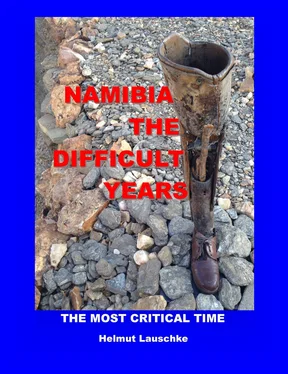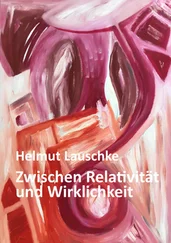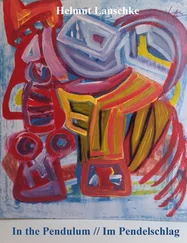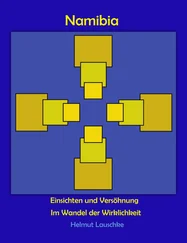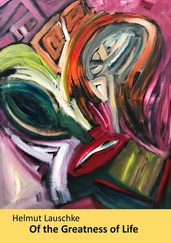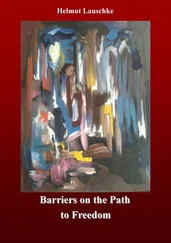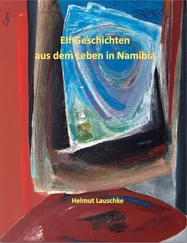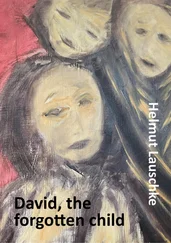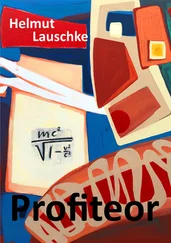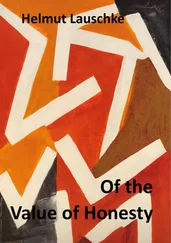I passed barefoot the checkpoint at the exit of the village. A bulb gave a dim light in front of the small control building. The two guards with carbines over their shoulders remembered the mud trudger. They started laughing when I told that I was a doctor and had to walk to hospital. One guard asked why the doctor was not fetched by a car that he must not walk in the darkness alone and barefoot through the mud. I said that no car is available to transport doctors on night duty. I did not say that the major-superintendent had a new Ford mini-loader reserved for himself, though he did enjoy an undisturbed sleep. The guards could hardly believe this explanation. They became quiet with signs of sympathy and respect for the walking doctor, but disagreed how a doctor on night duty was treated by the hospital administration. I passed the checkpoint and looked to keep the middle of the soggy road with the water-filled potholes.
As the night before, I washed the mud from the legs under the tap next to the entrance of the outpatient department and rolled down the trouser legs and put on the sandals over the wet feet. I entered the waiting hall and the nurses looked with big eyes at me. I approached the trolley with the patient brought from the Catholic mission hospital Oshikuku [ founded 1924 by frater Hermann Bücking ]. The patient was an old woman who could not tell her age what was common with old people. Her sister told that she was fifty, though her face looked older. The abdomen of the patient was bloated and I could not hear sounds of bowel movements through the stethoscope. But there were gargle and murmur and splashing sounds around the umbilicus. Blood was taken for chemistry and a nurse brought the sample to the lab. Since the X-ray machine was not working, the diagnosis had to be made by the physical examination only. I puzzled the findings together and diagnosed an obstruction in the lower segment of the small intestine with intussusception of the last intestinal loop into the large bowel [with a cuffing effect]. An operation was inevitable and the nurse translated the findings and diagnosis and the necessity of an operation into the language of the people. The lab-technician brought the blood chemistry results. The protein was below normal and the white blood cells were increased. The potassium level was above normal. I asked Dr Nestor, the black colleague, who was on duty for the department of internal medicine, to give the anaesthetics.
A nurse and I carried the patient on the trolley to the theatre building. After changing the dressings I filled a cup of tea in doctors’ tea room and stirred two teaspoons of sugar in. The patient was on the operating table when Nestor arrived and changed his clothes. I informed him of the findings and operative management needed. The instrumenting nurse had put the instruments on the instrument table and cleaned the skin over the abdomen with the brownish disinfectant solution and covered the rest of the patient’s body with green sterile sheets. After the midline incision from the xiphoid down to some centimetres below the umbilicus I spread the fascial and peritoneal sheets and opened the abdominal cavity. The small bowel loops were bloated and the large bowel was black with the smell of decay. The instrumenting nurse assisted. I removed the gangrenous bowel and connected the end segment of the small bowel [ ileum ] with the end bowel [ rectum ] by suturing the end-to-end anastomosis. It was a big operation which lasted more than two hours. The nurse gave a great example by assisting and instrumenting this operation.
It was three o’clock in the morning when the patient were carried from the theatre to the recovery room where the nurse put the oxygen mask on the patient’s face and measured the blood pressure and counted the pulse rate in short intervals. A bladder catheter was inserted to measure the urine output. The two doctors went for a tea to the tea room. They spoke of the critical situation in the hospital and mentioned the airs and graces of the superintendent in major’s uniform, who turned and twisted the words upside down. He made the morning meetings useless to a waste of time, since nothing came out of practical importance what could lead to an improvement. They agreed that Hutman continued his game as informer for the superintendent by snooping around the people. He undermined the spirit of good work and destroyed what the others tried to improve in this difficult situation. The military was controlling the activities in the hospital. “It is ridiculous to refuse medical treatment to patients who are suspected Swapo-fighters or Swapo-supporters. This is absurd and unethical ”, Nestor said and added that black people reject the occupation by South African forces, since the people reject the racial segregation with the colour bar. Only Swapo will bring the change according to the UN-resolution 435, what the whites in their opportunistic attitude oppose.
“As long as the whites are the masters, the situation remains hopeless for the blacks. That is the reason that the blacks resist the white system and support Swapo to make the country independent and restore the human rights for black people as well by giving them back human dignity.” It was a programmatic remark of the black colleague who suffered under racial discrimination like all the black people. I called the South African ‘apartism’ the African fascism as an anachronistic system that had become frail. It could not be held alive, also not militarily.
Nestor told his story: He was a child when he helped an older white lady by carrying a heavy box. He followed her to the exit of the shop. Another white lady did not wait passing the entrance that he touched her accidentally with the box. She beat him so hard in his face that he fell with the box. The content of the box spread over the pavement. The woman shouted loudly at him, while he was lying with pain on the pavement. She said that a black boy shall never touch a white lady. The other white lady came back from her car where she had opened the shutter. She helped him up and collected the food articles from the pavement and put them back in the box. She saw his left temple was bleeding that she dried it with a tissue. She gave him a five-Rand coin as compensation for his suffering as some extra money after she had stowed the box in the boot. “There I have experienced by myself how white women treat a black child who did nothing wrong by helping an older woman. From that time onwards I was afraid of white people who put their skin colour above the plight of a black child.”
It was the sad story of an innocent black child. I saw that Nestor started stuttering when he told his story and when he spoke to the superintendent in major’s uniform. This speech disorder was certainly related to his traumatic experience as a child. I asked Nestor why small black children started crying and grasped the mothers’ hands when they saw me coming on the square or when I entered the children’s ward. Nestor told that this had to be seen in the historical context what the whites had done to the black people. Children had seen how the whites had shouted at their fathers and mothers, had degraded them by beating and deporting them. Since then a black child did not expect something good from a white man. “Such a child needs time to experience that there were other whites who have a good heart and care for a black child”, Nestor added.
It was four o’clock in the morning when we left the theatre building and wished another some quiet hours. I went back to the outpatient department where no patient was waiting. The nurses of the night shift, one man and two women, sat in the hall around the table. Their heads were lying on crosswise-topped forearms on the tabletop. I left the waiting hall and rolled up the trouser legs to the knees. With the sandals in my hand and I stalked like a stork through the mud. I tried to keep the feet in the middle of the road and trudged in big puddles and some deep potholes. I reached the checkpoint. The sleepy guard on the chair put up his head and turned it from left to right signalling that I should pass, while another guard was snoring on the second chair with his head bent over the chest. So I continued walking through the mud.
Читать дальше
